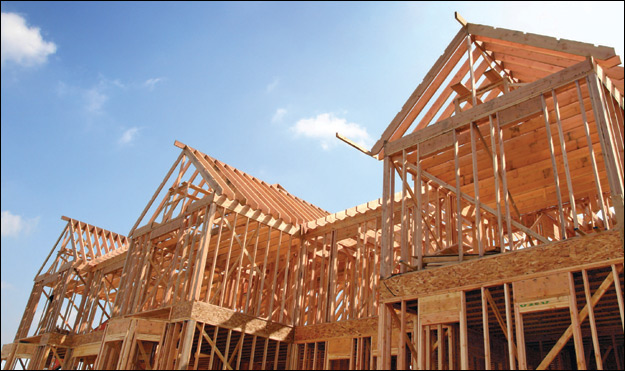
By Mike Linehan
National Head, Mortgage Specialist, RBC
2020 was a year unlike any other for Canada’s housing market. After grinding to a halt in the spring, housing activity came roaring back in the summer and fall, resulting in a record year overall. Activity was at or near an all-time high in eight provinces. While there are a number of factors that will influence housing activity in the year ahead, the reality is that the pandemic has changed the way Canadians think about their homes and homeownership, creating an opportunity for builders to re-align themselves with the needs and priorities of homeowners across the country.

Over the past year, nationwide efforts to control the spread of COVID-19 have kept millions of Canadians working and learning from home. While the change hasn’t been easy for everyone, many have come to embrace a more home-centered lifestyle. Less time spent commuting, flexible work schedules, opportunities to spend more time with family and local communities are all seen as positive outcomes. At this point, it’s safe to say that working from home is here to stay – at least in some form.
Even as vaccine rollouts enable a partial return to normal, many Canadians will not want to fully abandon their home office. For most, a hybrid model is likely to be the preferred work arrangement in the future, as many are missing the personal connections and sense of team that comes from being together in a space. Young people especially are eager to get back to the office – many of whom may have greater reservations about moving far away from their workplace than older workers.
But as Canadians settle into their hybrid work routines, they will also come to fully understand the limits and drawbacks of combining their home and work spaces. As a result, the design of our homes will need to evolve. As working from home continues, smart design and flexibility will become important selling features. Privacy – both for work purposes and for leisure – is also likely to move up the priority list for homebuyers. Open-concept living, for instance, may be seen as a negative unless it includes options for easily (and temporarily) sub-dividing the space as needed in order to accommodate everything from virtual learning to opposing work schedules to workout routines. High-speed internet and trouble-free connectivity in the house are expected to be table stakes as well.
But not all needs can be met with updated design and increased bandwidth, which is why many Canadians, especially those living in smaller spaces, are looking beyond the big city limits in order to address their housing needs.
A recent RBC poll found that nearly two-in-five respondents who said they are looking to buy a home in the next two years stated they are currently looking to upsize (38%). When asked, Canadians said they were most interested in purchasing property in the suburbs or a commuter city (38%), followed by rural areas (26%). Only 14% of respondents reported they would look to purchase a home in a major metropolitan area.

Homeowners and apartment dwellers who have attempted to convert their existing spaces into home offices, gyms, and classrooms, are shifting their focus toward larger, more affordable properties in suburban and rural communities. And with expectations of greater work flexibility versus pre-pandemic norms, homebuyers are able to justify a longer or more inconvenient commute if it is happening less frequently.
Going forward, we can expect it will take some time for employers and employees to find the right balance between working remotely and working on premises. While it’s unlikely to be one or the other, getting the mix right may prove to be challenging. Those who choose to move far away from their workplace may find that commuting concerns, currently very low, begin to play a more prominent role in their work-life balance.
Whether the changes in attitudes and priorities of homeowners are permanent or transitory is an open question, however there is no doubt that the Canadian homebuilding industry will see an opportunity to innovate and serve the needs of Canadians. Canadians take great pride in the achievement of homeownership. A home is our special place to find solace and comfort. The home of tomorrow will need to provide for personal regeneration, while at the same time offering purpose-built space designed to support a positive and productive work environment.










